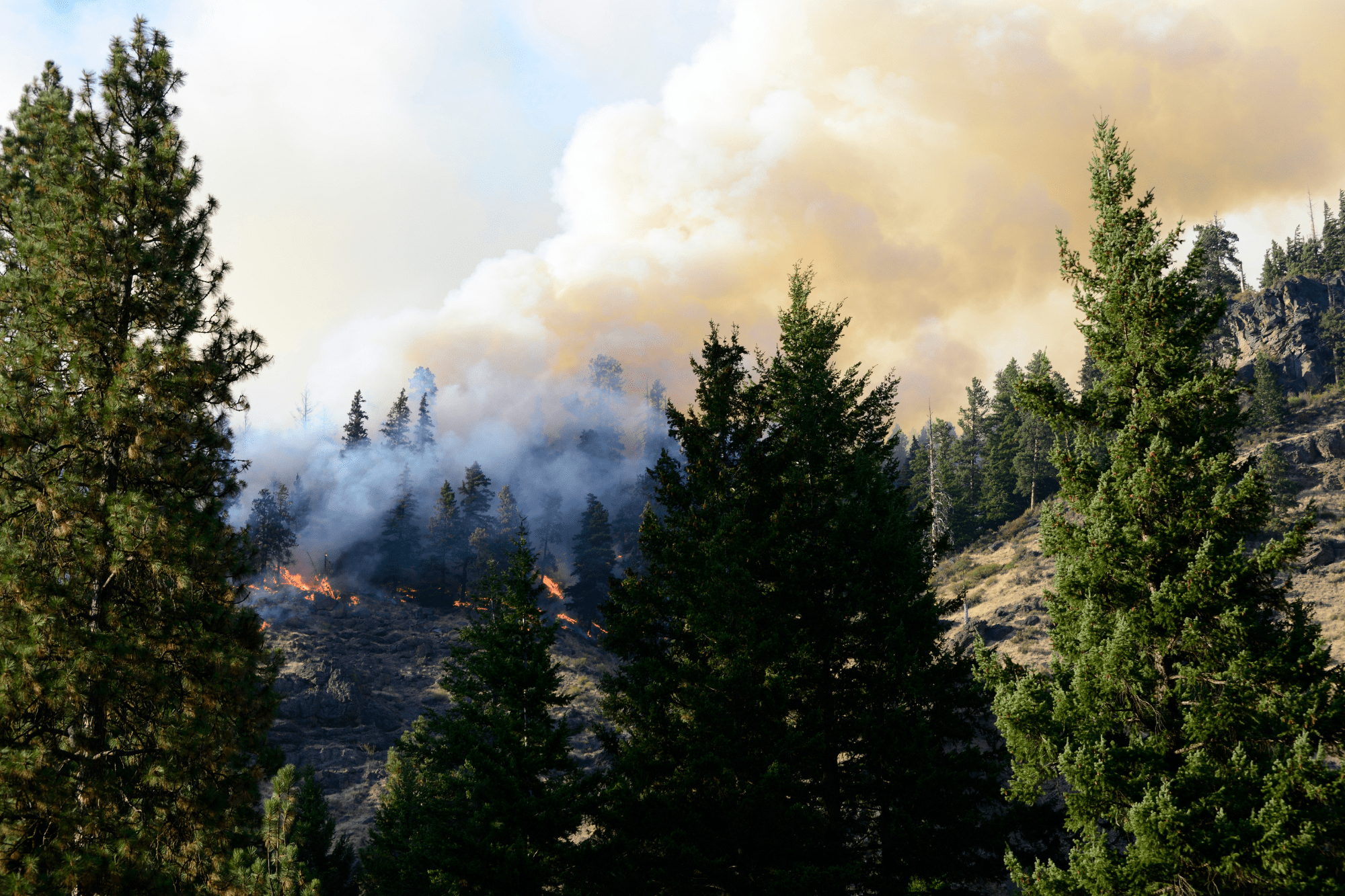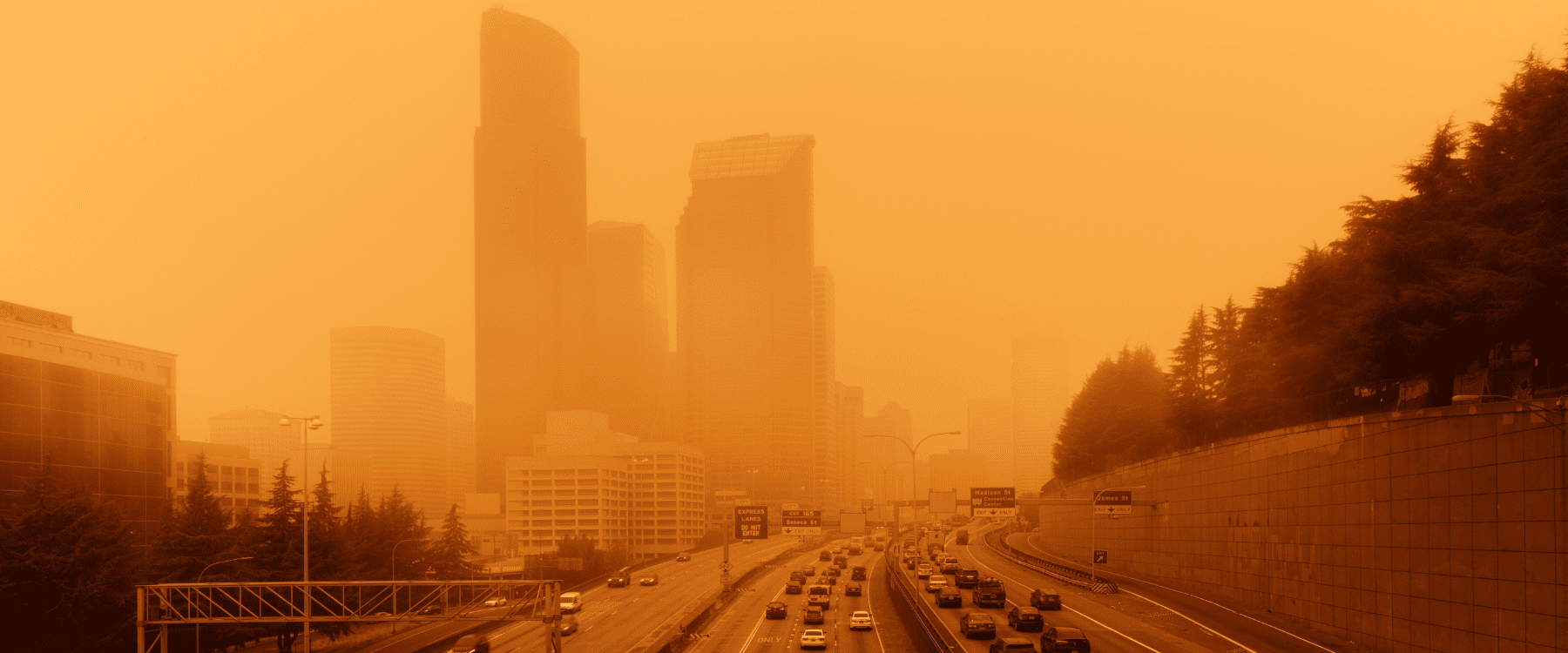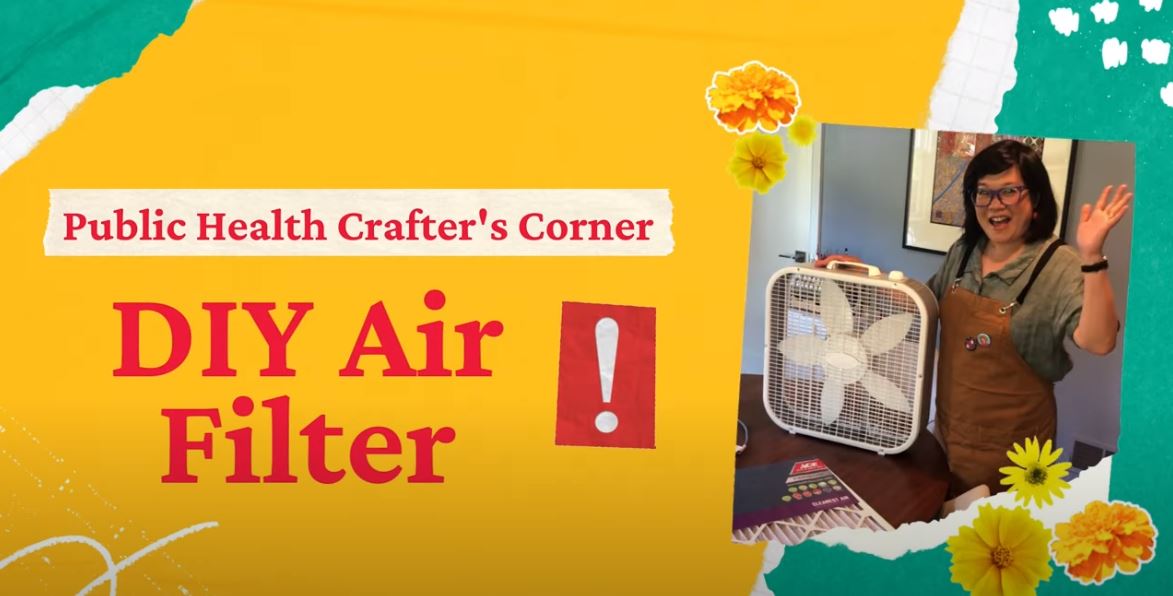
The quality of air we breathe is vital to our health. When wildfire smoke enters our region, the air quality can degrade quickly and be unhealthy for many. According to the Puget Sound Clean Air Agency, wildfire smoke carries the same health risks as wood smoke, except there can be a lot more of it. Smoke is full of small particles which can be especially dangerous for sensitive groups — infants, children, and people over 65, or those who are pregnant, have heart or lung diseases (such as asthma or COPD), respiratory infections, diabetes, stroke survivors, or are suffering from COVID-19.
While others across the country are facing extreme heat and all-time high pollution from wildfires this summer, the Puget Sound has not yet seen the same. However, it doesn’t take much for wildfire smoke to reach Seattle. Historically, winds carrying smoke from fires surrounding Western Washington (e.g., Canada, California, Oregon and Eastern Washington) have led to unhealthy air quality. While you can not predict when wildfires will happen, it is good to always be prepared.
Some helpful steps to protect yourself and your household:

- Check with your doctor to prepare for potential health impacts of wildfire smoke.
- If the air looks and smells smoky, outdoor activities may need to be delayed or cancelled. Use your best judgment. Follow these guidelines provided by Public Health Seattle King County.
- Check the air quality forecast regularly by using an air quality site such as https://www.airnow.gov/ .
At home tips:
- Improve indoor air quality on smoky days.
- Close windows and doors, unless it becomes too hot.
- Seek filtered air in a mall, library, or other air-conditioned building.
- Set up a clean air room using a HEPA or DIY box fan filter – instructions here.
- Pay attention to the heat indoors. If you can, run an air conditioner, set it to re-circulate and close the fresh-air intake. Make sure to change the filter regularly.
- Protect your pets from poor air quality and smoke – Tips for protecting pets and livestock.

Notes on masks for wildfire smoke – advice from Public Health Seattle King County:
- Masks don’t work for everyone and may worsen health issues.
- If you have breathing issues such as asthma or COPD, or heart disease, check with your healthcare provider before using any mask.
- Only use a mask after first trying other, more effective ways to avoid smoke, like staying indoors and reducing outdoor activity.
- Respirator masks labeled N95 or N100 can filter out fine particles from smoke but not hazardous gases (like carbon monoxide).
- Read the full document here.
